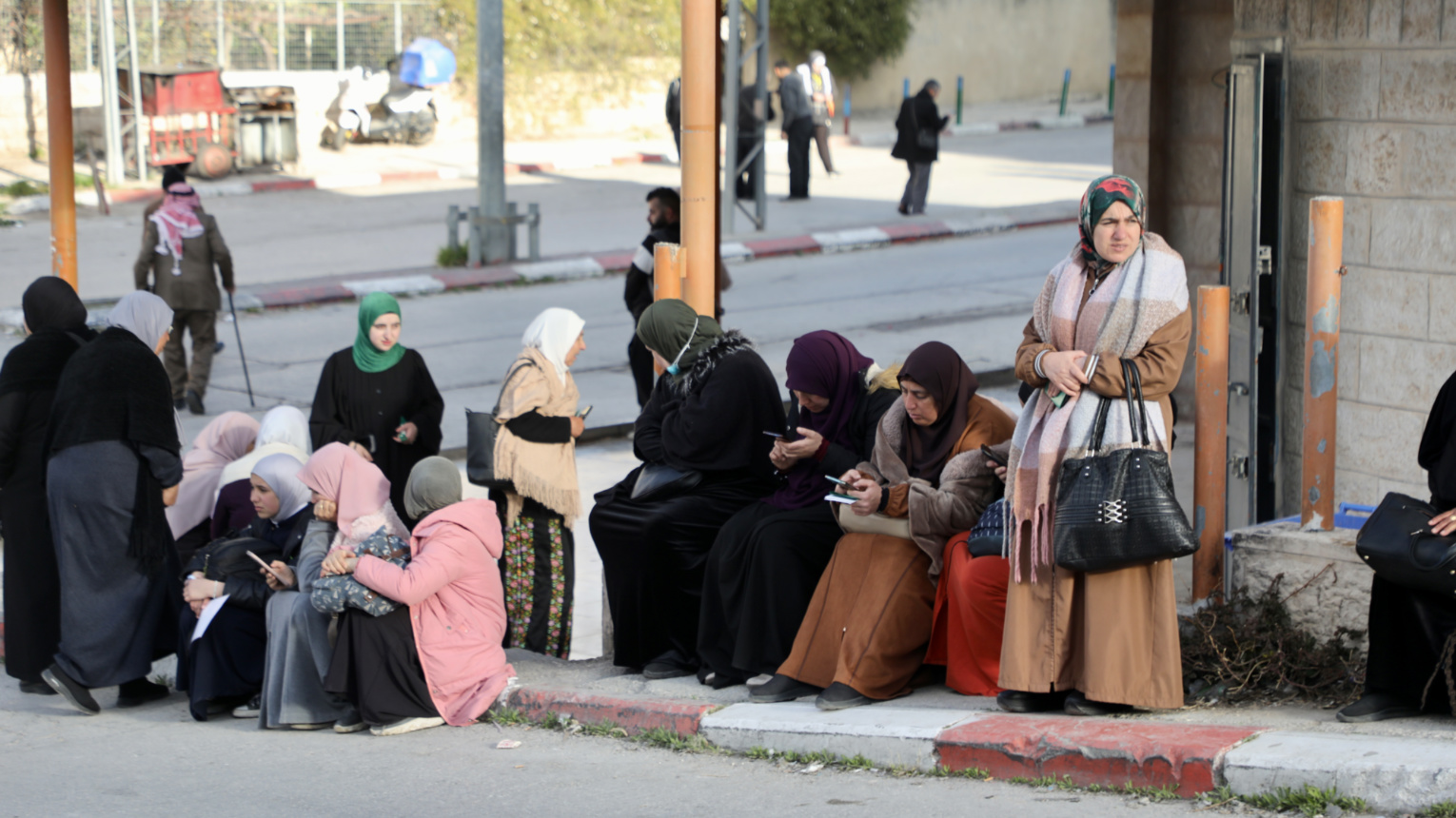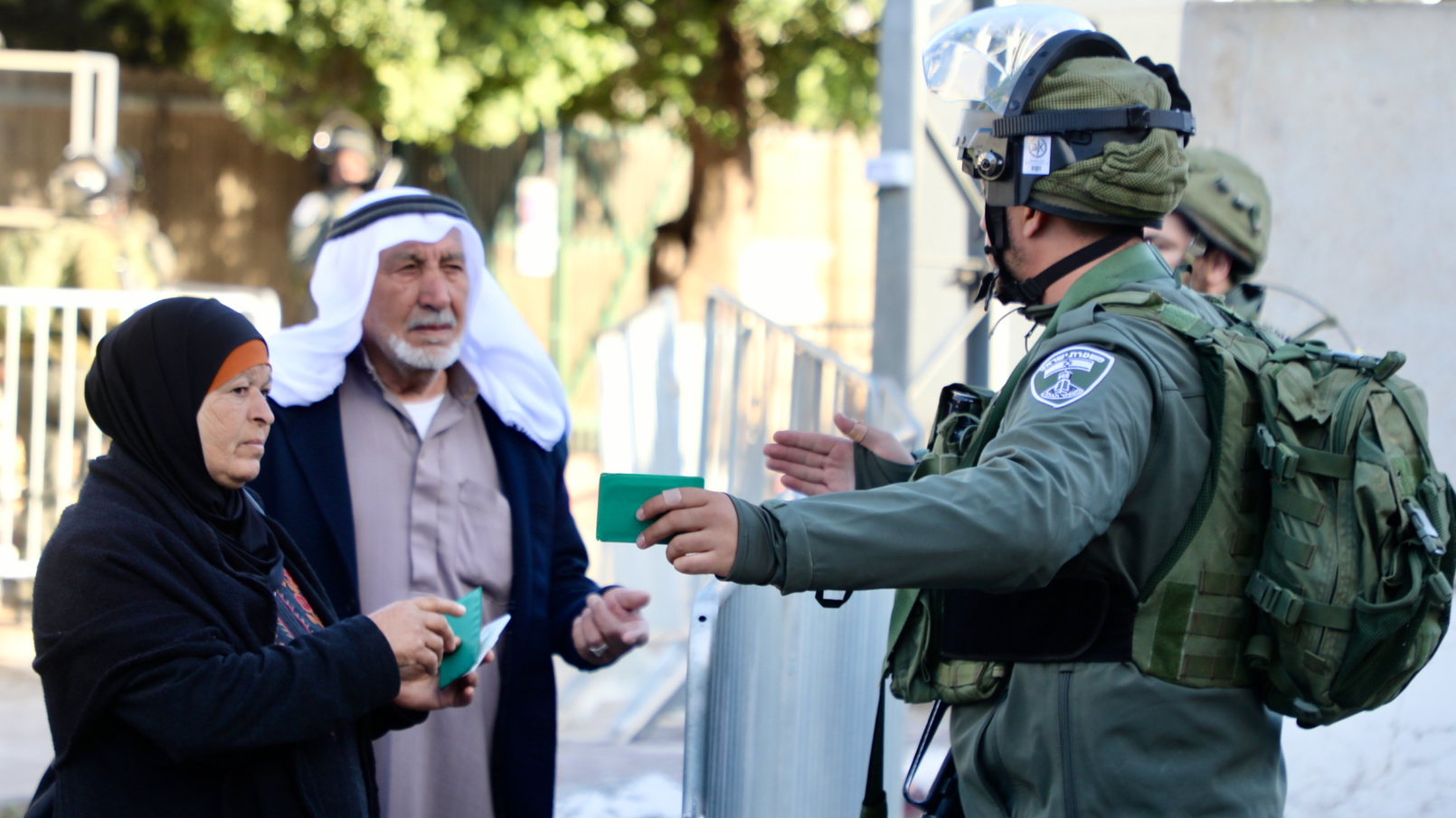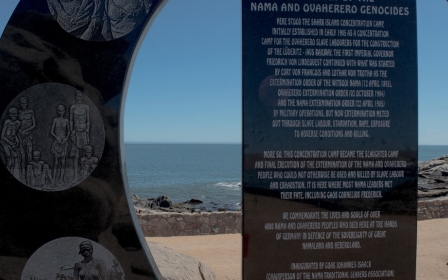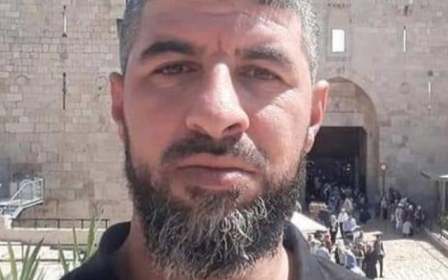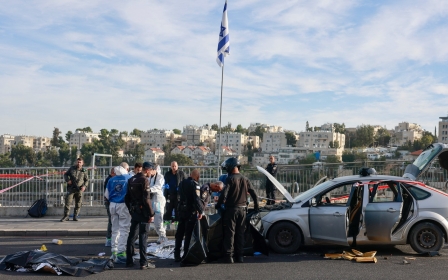Israeli forces block thousands from Friday prayer at Al-Aqsa Mosque
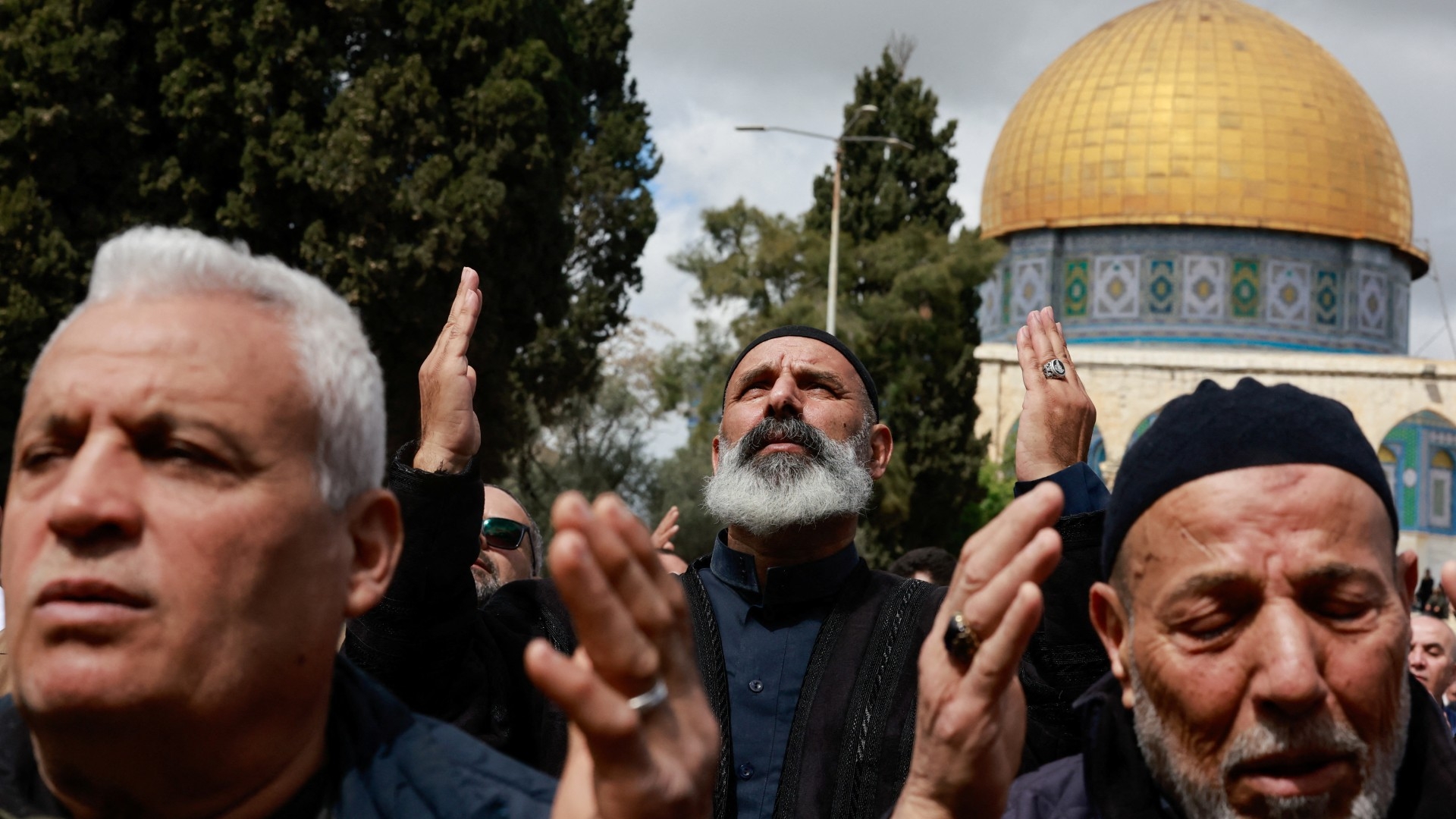
Israeli restrictions have prevented thousands of Palestinians from the occupied West Bank from going to Friday prayers at occupied East Jerusalem's Al-Aqsa Mosque, including elderly and female worshippers.
Typically, the first Friday of Ramadan would see tens of thousands of worshippers travel to the mosque from across the West Bank.
However, Israeli forces blocked roads since the early hours of the morning, according to local media, even preventing medical teams from entering the site.
The Palestinian Red Crescent said: “Israeli forces prevented all ambulances and crew members, as well as all medical teams, from entering Al-Aqsa Mosque.”
Several military checkpoints were established on the roads between the West Bank and Jerusalem. Witnesses told Middle East Eye that Israeli forces were particularly heavily deployed around the Qalandiya checkpoint between Ramallah and Jerusalem, as well as in Zaytouna and Bethlehem.
New MEE newsletter: Jerusalem Dispatch
Sign up to get the latest insights and analysis on Israel-Palestine, alongside Turkey Unpacked and other MEE newsletters
Thousands of worshippers were sent back after being denied entry through the checkpoints.
While Israel initially said elders would be allowed to cross, some speaking to Middle East Eye said they were denied entry. Many were sent away under the pretext of not having "prayer permits".
'I am 90 years old, what is your problem with me?'
- Palestinian worshipper
“They told me to go back," one man said after being turned away in Bethlehem. "I am 90 years old, what is your problem with me?”
The man, filled with sadness, said he would make another attempt to be allowed in.
Hanan, a 50-year-old woman told MEE she left her village of Arab al-Rashayda, a roughly 80km drive to Bethlehem, right after finishing suhoor, the meal Muslims consume before fasting starts at dawn. She was also told she needed a permit.
“We used to enter normally, this year they have tightened [their restrictions]," she said.
Many remain determined to go, despite Israeli restrictions.
"We need to get to Al-Aqsa," said an old man waiting in line in his wheelchair. "Even if I must die, even if it were the last day of my life, I must reach Al-Aqsa, God permitting."
Iron barricades
On Thursday, Israeli forces could also be seen installing iron barricades in the Old City of Jerusalem in streets leading to Al-Aqsa, to control and limit the numbers of people allowed to enter. Nearby roads were also closed off.
Rania Abu Safiya, 38, told local media that she tried to go to Al-Aqsa from Ramallah, but was told that she was not allowed.
"We wait for the month of Ramadan every year to enter the city of Jerusalem and pray. Today we were prevented due to the restrictions imposed," she said.
"We only came to pray. Where is the freedom of movement and freedom of worship? We are prevented from accessing the holy places during the month of worship.”
Many elderly people were also turned away after hours of trying to reach the mosque. Israel usually allows the elderly to access Al-Aqsa Mosque even when it imposes strict restrictions on worshippers.
Sadiq, 71, from the town of Huwwara near the West Bank's Nablus, said he was “sent back under the pretext that I didn’t have a security card and prayer permit”.
“At this age, why am I being asked for a permit, and where are the facilities to help? This is an Israeli policy aimed at preventing Palestinians from entering Al-Aqsa under the pretext of security,” he added.
He said that this is the first year he has been prevented from entering the holy site during Ramadan, and that it “felt like a slap”.
The Palestinian foreign ministry condemned "in the strongest terms" the Israeli restrictions.
It accused Israel of militarising Jerusalem after "hundreds" of iron barriers were set up in the city and thousands of Israeli officers were deployed.
This article is available in French on Middle East Eye French edition.
Middle East Eye delivers independent and unrivalled coverage and analysis of the Middle East, North Africa and beyond. To learn more about republishing this content and the associated fees, please fill out this form. More about MEE can be found here.


